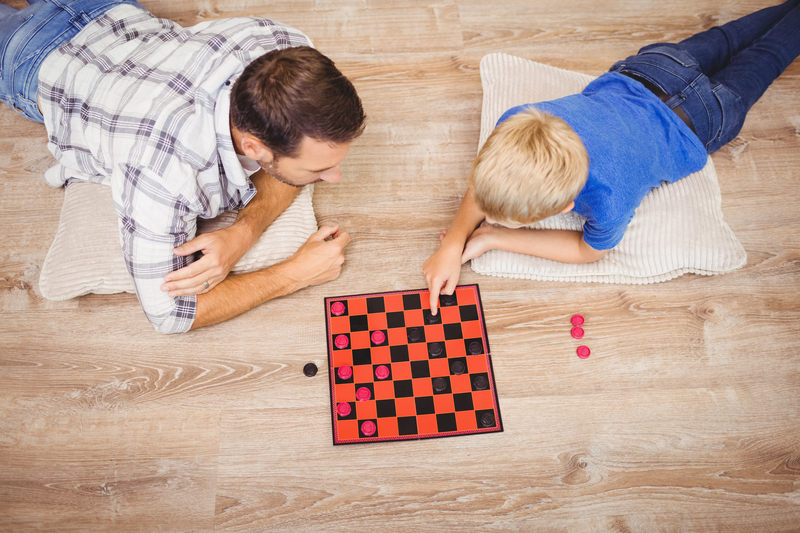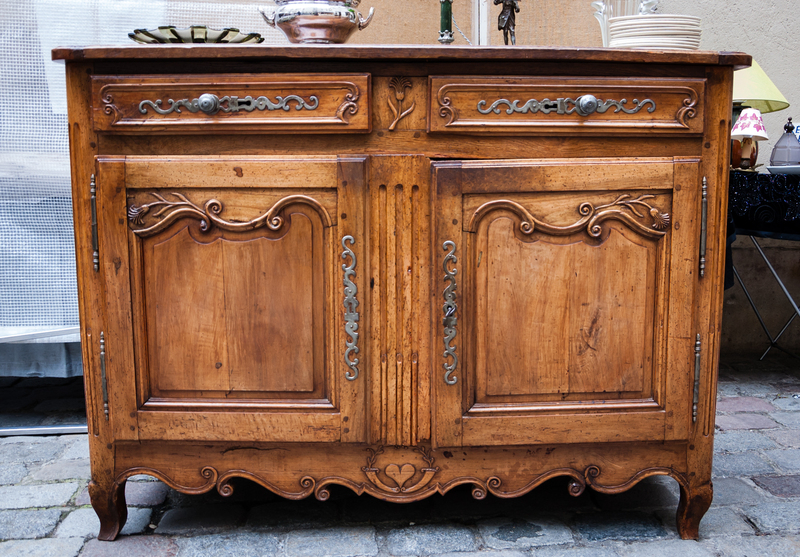Discover Peace through Decluttering and Minimalist Living
In the hustle and bustle of today's modern world, more and more individuals are searching for ways to bring calm, contentment, and clarity into their lives. A proven path to tranquility and fulfillment is found through decluttering and embracing minimalist living. But what does this lifestyle entail? How can it truly transform your environment and mindset? In this comprehensive guide, you'll discover the benefits, strategies, and profound peace available through clearing the clutter and adopting a minimalist way of life.

The Profound Connection Between Clutter and Inner Calm
Our physical spaces are mirrors of our internal states. Excess belongings and chaotic environments often lead to stress, distraction, and anxiety. Numerous research studies suggest that clutter increases tension and impairs concentration.
- Visual Distraction: Too much stuff overstimulates our senses and makes it hard to focus.
- Mental Overload: Untidy areas contribute to unfinished tasks and nagging to-do lists.
- Emotional Burden: Sentimental items and possessions from the past can weigh heavily on our minds, keeping us rooted in old patterns.
By contrast, clean and orderly environments foster relaxation, productivity, and a sense of well-being. This is why decluttering brings peace--it clears both our homes and our minds.
What is Minimalist Living?
Minimalism is more than just throwing away stuff. It's a conscious choice to focus on what truly matters and to eliminate distractions--physical, mental, and even digital. Adopting a minimalist lifestyle means being intentional about your belongings, your routines, and your priorities.
- Intentionality: Only keeping items that add real value to your life.
- Simplicity: Streamlining both possessions and commitments.
- Freedom: Escape from consumerism and the stress of always wanting more.
- Mindfulness: Living in the moment and appreciating life's essentials.
Minimalist living does not mean deprivation. Instead, it's about making space for what matters most. As you discover the power of decluttering and simplifying, you'll naturally make room for deeper peace, creativity, and joy.
Benefits of Decluttering and Minimalist Living
1. Enhanced Mental Clarity and Focus
When you clear physical clutter, you also create room for mental clarity. A well-organized environment allows your brain to rest, recharge, and produce creative ideas. Many minimalist enthusiasts report increased focus and productivity after decluttering their workspaces or homes.
2. Greater Emotional Well-being
Moving through life with less 'stuff' often reduces anxiety and stress. You no longer feel overwhelmed by endless cleaning, organizing, and searching for lost items. Minimalist living offers a calm and serene environment, fueling emotional balance.
3. Freedom and Flexibility
Heavy possessions can weigh you down--financially, emotionally, and logistically. With fewer things, it's easier to move, travel, or adapt to life's changes. Minimalists tend to enjoy greater freedom, flexibility, and adaptability.
4. Increased Financial Health
Decluttering is inherently tied to spending less and valuing quality over quantity. You'll save money by eliminating impulse purchases and investing only in what you truly need. This shift can lead to financial peace and greater long-term savings.
5. More Time for What Matters
Clutter consumes precious time--time spent cleaning, maintaining, and worrying about your things. Minimalist living helps you reclaim those hours, making way for meaningful experiences and personal growth.
How to Start Decluttering for a Minimalist Lifestyle
Ready to embark on your minimalist journey? It's easier than you think, and you don't have to do it all at once. Here are practical steps:
Step 1: Clarify Your Why
Ask yourself: Why do you want a simpler life? Do you crave more peace, more space, or more freedom? Define your motivation clearly--it will inspire you to stay committed throughout the process.
Step 2: Tackle Clutter by Category
Start small for big results. The popular KonMari Method suggests decluttering by category (clothes, books, papers, etc.) instead of by room. Hold each item and ask, "Does this spark joy?" If not, thank it and let it go.
- Clothing: Donate or recycle items you no longer wear.
- Books and Papers: Keep only valuable or currently useful documents.
- Miscellaneous: Kitchenware, gadgets, and toys can often be pared down significantly.
- Sentimental Items: Be gentle here--keep the most meaningful, and photograph the rest if you wish to remember them.
Step 3: Organize What Remains
Once you've trimmed down your belongings, organize everything with intention. Use storage boxes, label shelves, and ensure each item has a designated home. This supports a clutter-free lifestyle going forward.
Step 4: Adopt Minimalist Habits
Decluttering isn't a one-time event. To maintain peace and order, consider these ongoing minimalist practices:
- One In, One Out: For every new item you bring in, let go of one.
- Regular Reviews: Set aside time monthly or quarterly to tidy and reassess your possessions.
- Mindful Shopping: Before buying, ask if the item truly adds value or if it's just an impulse.
Minimalism Beyond Physical Clutter
True peace comes from a holistic approach. Consider applying minimalist principles to other areas of your life:
1. Digital Decluttering
Are your digital devices overloaded with emails, apps, and files? Set aside time to unsubscribe from unwanted newsletters, organize your digital folders, and delete unused applications. A minimalist digital space reduces overwhelm and improves mental peace.
2. Simplify Your Schedule
Minimalist living isn't just about physical stuff--it's about how you spend your most valuable resource: time. Review your calendar and reduce commitments that don't align with your priorities. Make space for rest, creativity, and meaningful relationships.
3. Minimalist Mindset
Work toward a mindset of gratitude, sufficiency, and simplicity. Focus on the present moment and appreciate what you already have. This attitude naturally leads to less craving, less comparison, and more abiding peace.
Common Challenges on Your Decluttering Journey
Every lifestyle change has hurdles. When you set out to discover peace through decluttering and minimalist living, you may face:
- Sentimental Attachments: Letting go of treasured items can be hard, but remember--that memories reside in your heart, not your belongings.
- Fear of Scarcity: It's common to worry "I might need this someday." Trust that most things can be replaced if truly necessary.
- Family Resistance: Not everyone may be on board at first. Lead by example and respect others' boundaries.
- Decision Fatigue: Decluttering requires making hundreds of small choices. Pace yourself and take breaks if needed.
No matter the challenge, remember your why and celebrate every small victory along the way.
Tips for Maintaining a Minimalist Home
After you've cleared the clutter, how do you keep your sanctuary serene? Try these practical tips:
- Daily Tidying: Spend 10-15 minutes each day resetting your space--putting things away, wiping surfaces, and clearing hotspots.
- Storage Solutions: Utilize baskets, bins, and organizers to keep visible surfaces clear.
- Seasonal Purges: At the start of each season, review and donate items you didn't use.
- Intentional Decorating: Choose a few loved pieces instead of crowded shelves.
The key is consistency and mindfulness. Over time, these habits become second nature, deepening your sense of peace and well-being.
Decluttering and Minimalism: A Path to Lasting Peace
More than just a trend or aesthetic, minimalism and decluttering offer a profound opportunity to align your external environment with your internal intention. Whether you're hoping to reduce stress, gain clarity, or simply enjoy more space, clearing away the unnecessary will help you discover true peace.
- Start small: Every drawer cleaned, every closet simplified, brings you closer to calm.
- Be patient with yourself: Minimalism is a journey, not a destination.
- Reap the rewards: Less cleaning, less stress, and more room for what you love most.
As you move forward, you'll find not only a more beautiful, spacious environment--but a deeper, more peaceful you. Declutter, simplify, and let the clarity of minimalist living guide you to lasting fulfillment.

Frequently Asked Questions about Minimalist Living and Decluttering
What if I live with others who don't want to declutter?
Focus on your own possessions and lead by gentle example. Open communications, share your motivations, and offer help if they become interested--but always respect their choices and boundaries.
Is it expensive to adopt a minimalist lifestyle?
Quite the opposite! Minimalism often leads to saving money since you buy less and focus on quality over quantity. There's no need for fancy organizers or expensive storage--you can be creative with what you have.
Can decluttering really improve my mental health?
Yes! Numerous studies link clean, organized environments to reduced stress and anxiety. Many people report feeling lighter, calmer, and more optimistic after decluttering and simplifying.
Start Your Journey Today
The peace and clarity you seek are closer than you think. Start small, stay mindful, and watch as every closet, corner, and cluttered spot becomes a stepping stone to a serene, centered life. Discover peace through decluttering and minimalist living, and unlock the freedom you deserve.